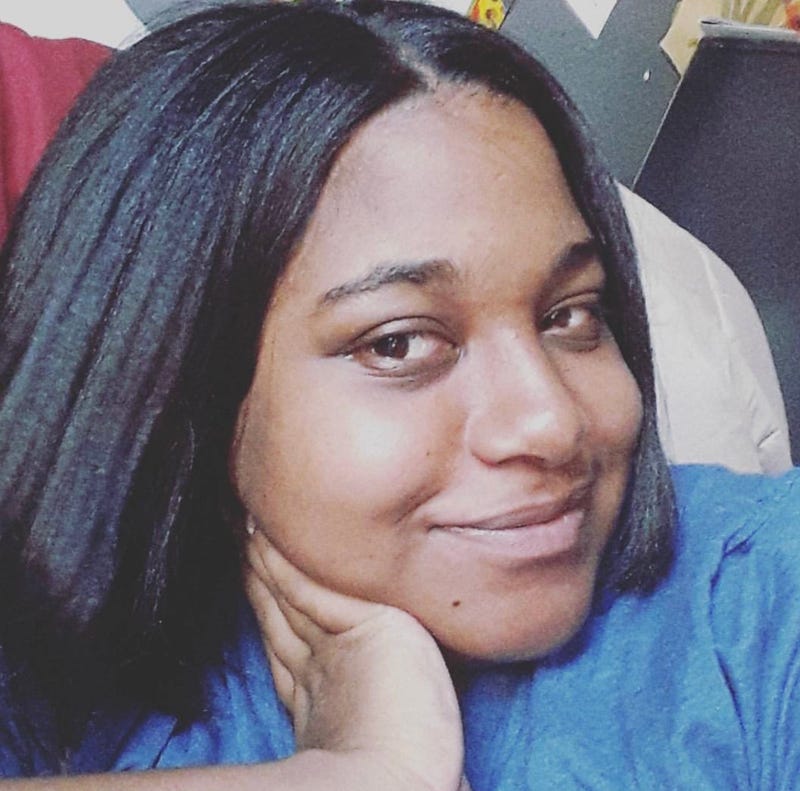https://www.theroot.com/erica-garner-i-m-in-this-fight-forever-1821674010?utm_source=theroot_twitter&utm_medium=socialflow
When I met Erica Garner in 2016 at the Drug Policy Alliance Conference in New York City, it was not a meeting of activist and journalist; it was a chance meeting between two women who were desperately missing their fathers and determined that they would never be forgotten, that their legacies would endure.
Her eyes were tired and filled with that consuming grief that never goes away. The kind of grief that shocks the nervous system and sinks deep into your bone marrow until it becomes a part of you. Still, she smiled. She put one foot in front of the other and she chose life; she chose to live for her father and not die with him. She chose her daughter, Alyssa.
Erica chose us. Time and time again, she chose us.
I envision her now, voice hoarse and cracking, fist in the air, not giving a fuck about who didn’t like what she had to say or how she chose to say it.
I see her lying down in the same spot, on the same Staten Island N.Y. street corner, where NYPD officer Daniel Pantaleo choked her father to death in broad daylight simply because he could. She was joined by other protesters in a “die-in” as many people walked by as if she didn’t exist.
I see her calling out ABC for their farce of a townhall on race after the network walked back a promise that she would be allowed to ask President Barack Obama a question.
I see her refusing to be a tokenized voice of a “resistance” constricted and diluted for white liberals’ comfort. During the 2016 presidential election cycle, Erica stood, unshakable, as an emerging, powerful voice of the radical black left. When the majority of black women voters supported Hillary Clinton—many of them calling anyone not doing the same either politically unsophisticated, dangerous, or “privileged” enough to make decisions rooted in morality—Erica was clear that her decision not to support Clinton was rooted in the survival of her family, her community, and justice for her father.
She was the embodiment of unbought and unbossed.
I see her calling out NYC Mayor Bill de Blasio for refusing to support the release of Pantaleo’s disciplinary record. This killer cop not only remains on the city’s payroll, he has received multiple pay raises. Bill de Blasio, however, would rather share his superficial condolences on social media in the wake of Erica’s death, instead of pursuing the justice that would have made her life easier.
Erica was a revolutionary. She knew the magnitude of what she was taking on and she jumped into the movement—feet planted, back straight, head high, warrior heart beating. She didn’t shy away from calling out the Democratic Party for being complicit architects of mass incarceration, nor was she silent about the community occupations that led to her father’s state-sanctioned killing.
Erica Garner was about her father’s business.
To hear her speak about respectability politics, broken-windows policing and the war on drugs, was to see a young black woman fully aware that her father had a target on his back before he ever stepped foot on that corner and dared to navigate the world as a free black man.
She did not seek the spotlight for herself; she snatched the glaring flashlights of the police state, those lights trained on black, brown, and indigenous communities, those lights that relentlessly targeted her father, and she turned them right back on their cowardly faces.
I do not know if she was unafraid, but she was brave.
Three weeks ago, in an interview with Benjamin Dixon, Erica talked about Venida Browder, Kalief Browder’s mother, who died last year after suffering a heart attack. She also shared that the white supremacist system that she was going up against was trying to kill her, too.
“[Venida Browder] died of a broken heart. She had heart problems because she kept on fighting for her son. Like, I’m struggling right now, with the stress and everything, ‘cause this thing, it beats you down. The system beats you down until you can’t win...I felt the same pain that my father felt on that day when he was screaming, ‘I can’t breathe.’ When he was saying that he was tired of being harassed, tired of being arrested and his money stolen.” — Erica Garner
That’s what this white supremacist, heteropatriarchal, capitalist, imperialist, genocidal system does. It tries to break you into tiny pieces until you don’t recognize yourself anymore. It steals fathers away from daughters and mothers away from their children. It etches trauma into the walls of your chest cavity until your heart just can’t take it anymore.
Erica gave birth to her second child in August—her son Eric III, named in honor of his grandfather. It was then that doctors discovered that she had an enlarged heart, but she refused to stop fighting for justice. Despite how dangerous pregnancy and the postpartum period is for black women, how potentially fatal, she kept going.
“I warned her everyday, you have to slow down, you have to relax and slow down,” her mother Esaw Garner-Snipes said.
But how could she?
It would have been a revolutionary act for Erica to focus on her health in a world that demands that black women bear the burdens until we’re buried in the ground. “It’s a marathon, not a sprint,” that’s what movement elders tell us. But, sometimes, the systems of oppression, neglect, violence, and exploitation break us down until we feel we don’t have a choice. We find ourselves carrying so much pain, suffering so much loss, and holding so much rage, that practicing self-care feels impossible without justice. Sometimes, there can be no peace within without it.
That’s how white supremacy kills—slowly and quickly.
The police state that killed Eric Garner; the killer who choked the breath from the body of Erica’s “Superman;” the mayor who protected that killer—and the police department that keeps him gainfully employed to kill again—not only denied Erica justice, they actively caused her harm. Just as the NYPD lynched her father, she struggled against the noose of white supremacy tightening around her throat and the boots of the state on her back.
She lived with the eyes of the NYPD following her every move. She fought without ceasing for her father, for her children, for her people, for a world in which the humanity of her people was unassailable.
She cried freedom every day of her life and she did not deserve this. Her children don’t deserve this. No family should experience this much soul-scarring pain and loss. It ain’t fair that, at 27-years old, she will be called a martyr when what she lived to be called was mama. State violence intruded into her life, into her family’s life, in such a vicious, brutal way that the horror is almost unspeakable.
She couldn’t breathe.
“I’m not giving up and this is the fight. I’m in this fight forever,” Erica told Dixon. “No matter how long it takes, we deserve justice and I want justice for other people. And I want other families to know, it’s hard, but you gotta keep going. You gotta keep the name out there. People will forget.”
Know this, Erica Garner—mother, sister, aunt, friend, daughter, comrade, truth-teller, light-bringer, freedom-fighter: You shook the world and we will always say your father’s name.
Eric. Garner.
Thank you for being radical, revolutionary, black love in action. Thank you for being brave. Thank you for being loud and unapologetic and unwavering. Thank you for imagining another way of being in the world, for capturing an elusive vision of black freedom and never letting it go. Thank you for teaching us and demanding more from us.
Thank you for sharing that quiet moment with me—both daughters, both mothers, connecting over struggling to find joy in a cruel world without our fathers.
We love you. We continue this fight for you. We will always say your name.



No comments:
Post a Comment